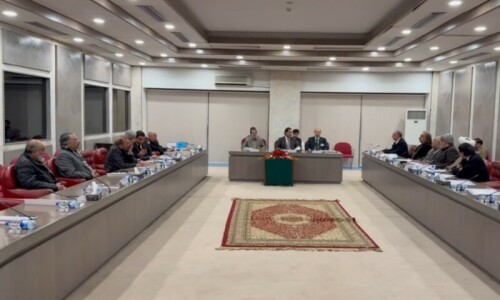OVER a year since it was first floated, the federal cabinet approved the Ministry of Information Technology’s ‘Digital Pakistan’ policy last week. As the country’s first digital policy, ICT professionals have hailed its approval as a landmark move. The timing — at the tail end of the government’s tenure — is curious, but if seen as indicative of the PML-N’s future legislative aspirations, it merits scrutiny. Mainstream policy discussions in Pakistan rarely focus on this oft-neglected yet vital sector in any modern economy. Over the last five years, without much government support or clear terms of business, our IT sector has experienced tremendous organic growth — generating $3.3bn in revenues, according to the 2016-17 Economic Survey. There is ample room for further growth, and the IT ministry’s stated target is to raise exports of IT goods and services to $10bn by 2020, through the introduction of several economic incentives. The potential this has to revolutionise both private and public services, attract foreign investment and deepen our integration in global value chains cannot be overstated.
Where the policy is surprisingly thin on details are the very issues that the government has compromised on in the past when it enacted the Prevention of Electronic Crimes Act, 2016: data protection and content regulation. PECA affords the PTA the power to remove and block any content based on extremely generalised parameters. Given the lack of clarity on content restrictions and the distributed nature of the internet, as long as the potential for broad and arbitrary bans on content (even whole ICT services as well as the internet itself) exists, the law in its current iteration fosters a non-conducive business climate. Here, people’s right to information and freedom of expression are intrinsically linked to ensuring an open and free cyberspace. Meanwhile, the policy makes only passing reference to the need to ensure consumer rights by passing a data protection law. In recent years, citizen databases in India, Turkey, Brazil, etc have been breached many times — reportedly, even Nadra has experienced this. Yet the policy, which aims to consolidate all citizens’ personal information under one cloud, fails to address specifics of how such data is to be collected, stored and, most importantly, protected. For Pakistan’s IT industry to truly flourish, any future government must ensure that the country’s digital laws are harmonised with global standards. This policy is a start, but in the upcoming election campaign, all political parties ought have well-articulated digital visions.
Published in Dawn, May 29th, 2018










































